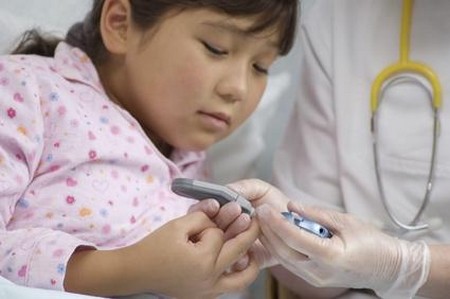The way you react to and handle problems of daily life has a profound effect on the way your children perceive those problems and the way they eventually learn to cope with and solve problems as adults. Therefore, if you as a parent lose your cool and treat childhood diabetes as if it were a major disaster with guaranteed dire consequences, your child is going to fall into a panic and behave in ways that are counterproductive to treatment.
If, on the other hand, you treat the diabetes as if it were nothing more than a bad cold, and if you don’t educate yourselves, your child will probably not learn how to manage the diabetes in a responsible and sensible manner. If you deny the significance and danger of diabetes, you will induce the same denial in your child, who will not learn good blood glucose control.

Children with diabetes may worry more than other children, and no wonder. They are under both physical and psychological threat, they have important responsibilities that the majority of their peers do not, and they learn that if they don’t take care of themselves, the consequences can be dire. Therefore, you need to be sympathetic without becoming overprotective. Overprotective parents will create a fearful and overly dependent child.
If blame is tossed around the household like a malevolent football, everyone suffers. Even if you believe the diabetes comes from your spouse’s side of the family, don’t say it. There’s enough guilt there already. And whatever you do, don’t blame your child (“I told you not to eat so many candy bars”). There is absolutely nothing anyone could have done to prevent this. Therefore, casting blame is useless, pointless, and cruel.
The best approach goes something like this: “Diabetes is serious, but we can handle it, just as we’ve handled other problems in the past. We’ll all pull together as a family (including siblings) and learn how to cope with this successfully.”
Because children will have diabetes for life and because they need to learn from the beginning how to manage it, it is important that both parents agree to view the diabetes the same way and to treat the child consistently. Even if the two of you argue privately, you need to present a united front to your child so as not to send mixed messages about treatment and the emotional impact of the disease.
The way parents treat children should not change after the diagnosis. After all, they are still the same person, now needing sympathy, understanding, and skilled attention, as well as the love you have always shown.
One way you can show that nothing essential has changed about the parent-child relationship is by maintaining discipline. It might appear almost cruel to punish children who have fallen ill with a serious disease, and it seems natural to let children do and have whatever they desire, but this is a mistake.
Withdrawing discipline is jarring, and the child may misinterpret it. For instance, if you have been honest about the fact that diabetes is serious but entirely controllable, the child could think, “They say this isn’t that bad, but they’re letting me do all the things I was never allowed to do before. That must mean they feel really sorry for me, so maybe I’m going to die. Why else would they be so lenient?”
This kind of thinking is scary for a child. Maintaining discipline and established limits demonstrates love and caring, and even a hint of the withdrawal of love at so crucial a time would be devastating. Setting limits and establishing good habits are preparation for the future. If these are ignored, children with diabetes could easily come to believe that they have no future.

This is not to say that there won’t be changes in the way family members relate to one another; there will be. There will be jealousy, resentment, and perhaps more serious problems on the part of the diabetic child’s siblings. It is not that they want diabetes, but being sick means that one gets a great deal of attention. Young children don’t understand that this sudden diminution of attention away from them and onto a sibling has nothing to do with them and it is not the result of their behavior. All they see is their parents focusing a great deal on the sick child, and they get jealous and may begin to act out in inappropriate ways. On the other hand, they may be fearful they will “catch” diabetes from the sibling. They may be ridiculed and shunned at school, and their grades may drop.
So there may be a lot going on in your household for a while after the diagnosis. You’re probably going to be busy, harried, worried, and scared. But you and your family do not have to go through this alone. The important thing for you to remember is that, although your child’s diabetes will last forever, the crisis mode that you may be functioning in at the beginning will not.